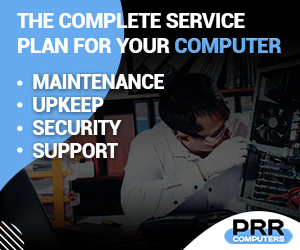For whatever reason, it could be that you’ve never used a laptop before. So it could be that the new laptop you’re buying is your first computer. Another possibility is that, until now, you have been satisfied with a desktop computer. However, you want a lightweight computer that you can take with you anywhere in your home (on the sofa, on the terrace, or in the kitchen) or on your travels. In this free essay are some guidelines to help you choose the laptop that best suits your needs.
Are you sure you need a laptop?
If you are reading this content, chances are you are considering buying a laptop. As a central computer or to complement a desktop computer.
In any case, it is good for you to ask yourself if you need such a computer. Do you need a computer that is easily transportable, not even from one corner of your home to another? Do you need a compact and easy-to-store computer? If the answers are yes, yes, you need a laptop.
In any case, keep in mind that if the computer you are looking for is for working at home, a desktop computer is often the best option. A PC allows the use of larger screens (ideal for viewing work files and opening two documents simultaneously on the same screen) and offers excellent performance at a better price.
What do you want the new computer for?
It is the first thing you should always ask yourself when buying a piece of technological equipment. The primary use you give to your computer will determine the type of laptop you need.
Types of laptop usage
To help you answer this question, we list the main use categories for one of these computers. Of course, the reasons for owning a laptop are almost endless, but we can narrow the motivations down to four major groups:
- Home office and school. You’re going to use the computer to write texts (word processing), create and manage spreadsheets, make slide presentations, search for information on the Internet, and do other academic tasks.
- Gaming. If you are going to play games on your laptop, you need to buy a computer ready to offer the best gaming experience.
- Internet browsing. To access websites, streaming platforms, and websites, and to manage email. For this type of use, a simple laptop will suffice.
- Audiovisual content creation. You plan to use the laptop for video editing, image manipulation, music recording, and other tasks involving audiovisual creativity.
Laptop weight and size
When it comes to laptops, size and weight are two critical buying criteria. They influence ease of use and portability. The larger the screen, the more comfortable the equipment is to use. The lower the weight, the greater the mobility of the notebook.
Size and weight also correlate with price. The larger the screen size and the lighter and thinner it is, the more expensive it is.
Do you want a laptop because you are looking for a compact computer for your home or office?
For many consumers, the laptop is a way to have a compact computer. That is a computer without the bulky case of a traditional desktop and the space-consuming monitor requirements of an all-in-one. This laptop merges the Display and processor into the same unit. With all-in-ones, you get rid of the computer tower on the one hand. But on the other hand, you get a monitor with more bulk, which is more noticeable on top of your desk.
In short, for many people, an all-in-one is not compact enough, and a laptop is.
So if you don’t like having a monitor on your desk, a laptop is a logical choice. Because it’s a computer that can be stored in a drawer, freeing up desk space.
Need to move the laptop? Size does matter
Laptops are meant to be transported. If you’re moving your laptop from room to room, couch to the kitchen, kitchen to desk, size and weight matter. You need a light and not too big computer that you can move quickly, and that won’t be a nuisance when you put it on your lap.
Keep in mind that thinner, lighter laptops tend to be more expensive than bulkier, heavier ones.
What to expect in each weight range?
Any laptop that weighs about 2 kilograms shouldn’t give you any trouble moving it around indoors.
However, a lightweight computer is the best choice if you need to carry your laptop around in a backpack, on the street, and public transport. A suitable weight is (approximately) 1.4 kilograms.
If you can, test the weight of your laptop.
If possible, try to get your hands on the equipment you want to buy. The idea is to get an idea of the weight and size of the laptop.
Screen size
The size of a laptop is correlated to the size of its screen. The most common way to measure the screen is to draw a straight line between opposite corners. This diagonal is usually quantified in inches, but now commercial information must also be given in centimeters.
Small laptop? Ok, but not tiny.
There are laptops of up to 10 inches, although the minimum size for the equipment to be practical would be 11 inches.
However, the most sensible thing to do is opt for a laptop of at least 13 inches.
Are you hardly going to move the laptop from the desk? Choose a 17-inch laptop.
If you are not worried about the weight and size and have the budget, we recommend you choose a 17-inch laptop. It is a computer that you are not going to move from one place to another. It is not a good idea to take it to the sofa or the kitchen, because it is too heavy and bulky.
The strength of such a large laptop is that it is more pleasant to use.
At 17 inches, you’ll work more productively. And you can use the option offered by Windows 10 to increase the scaling percentage. Everything looks more extensive, and you don’t lose too much screen space. We explain it to you in the following point.
How to magnify the contents of the screen
With Microsoft Windows, a larger screen allows you to increase the screen magnification. In Windows 10, you must follow the following path: Windows Settings (gear icon) / System / Display.
Once you are in Display, go to the drop-down menu in the Scale & Layout / Change the size of text, applications, and other elements section. You can choose between 100%, 125%, 150%, and 175%.
By changing the scaling percentage, you are modifying the DPI (Dots Per Inch) of the screen. It is how you can see everything bigger in exchange for visiting less content.
Setting the DPI of the screen should not be confused with the Screen Display. With the latter option, you can increase the size of desktop icons.
Do you need a 1080p resolution?
If possible, make sure that your first laptop offers you a resolution of at least 1080p. A 1080p resolution is ideal. You probably won’t need a higher pixel resolution. 4K displays are only suitable for video and image content creators.
Better navigation and document viewing
The more pixels, the easier and more pleasant it is to read a document.
With 1080p, you can read on the screen without constant scrolling (scrolling the document). In addition, you can multitask on the screen. Thus, you can open two windows on the screen, side by side, and you can view the content of each of them well.
Keyboard and trackpad
When buying your first laptop, it is also good to look at the keyboard and trackpad.
Trackpad: A touchpad to save you the use of a mouse
If you’re not familiar with laptops, you probably don’t know what a trackpad is. It is a touchpad located just below the keyboard that allows you to control a cursor and make it easier to navigate the Internet and use programs.
With the trackpad, you can save yourself the use of a mouse, a freedom that is appreciated when you use your laptop on your lap or a very narrow surface. That is, in situations where you cannot handle a mouse with ease or dignity.
Pay attention to the size of the keyboard.
Nowadays, almost all laptop keyboards offer minimum quality standards. Therefore, the factor to take into account is the dimension. The bigger the computer, the bigger the keyboard.
You can always connect a desktop keyboard.
If you are used to the generous keyboard of a desktop computer, you should know that you can still connect it to your laptop via a USB port. If you hardly ever move your laptop from your desk or table, it is a good idea to have a large keyboard at hand if you have to type a lot and therefore make intensive use of the keys.
Do you like to use a mouse? Perfect
The trackpad is functional in mobile situations. But for many, the mouse offers the comfort of use and precision, advantages that are hard to give up.
Battery life
Most laptops of the latest generations last at least a couple of hours without being plugged in. A couple of hours is a more than sufficient margin if you usually use the equipment indoors, at home, or in the office. With those 120 minutes of battery life, you can go out on the terrace or sit on the sofa for a while without cables. And if you want to spend more time away from the desk or table where you usually use the laptop, use an extension cord to gain freedom and maneuverability.
However, if you move around a lot and spend many hours without access to a power outlet, your laptop must have more hours of battery life. In this case, the equipment you are looking for is thin, light, and long battery life.
What features should you ask for in your new computer?
If you are going to give more or less critical use to the equipment, if you are going to do more than surfing from time to time, the minimum you have to ask the laptop is a Core i5 processor and 8GB of RAM. The hard disk should be SSD (one of 256GB is already fine) because it allows all your programs to load faster.
Connectivity
You have your eye on a very elegant and high-performance ultrabook, but it only has one port: where will you connect your mouse, cell phone, external hard drive, etc., without a USB hub?
If you need to read memory cards, check that the notebook can read them by itself. If you need an HDMI connection, make sure that the computer has one.
Alternatives to the Windows laptop
A Chromebook?
If, in addition to being your first laptop, the computer you’re looking for is your first computer, you’re probably not used to the Windows operating system.
One option is laptops that use Google Chrome OS. This operating system does not have the security vulnerabilities of Windows, and it is much more difficult for a malicious application to harm your computer. Even in a catastrophe, it is easy to reset this type of laptop to a factory state, restoring all applications and data from the cloud (online storage) that all Chromebooks employ.
Laptops running Chrome OS are successful for school use because they are easy to use and difficult to infect with malware.
A tablet?
If you’re a complete computer novice, a tablet might be a suitable starter device, as well as a useful one. If you’re already an accomplished smartphone user, the tablet presents no challenge. On the contrary, you gain a larger screen than a cell phone.
However, if you feel like browsing and doing business with a device that guarantees you some mobility, what you need is a laptop.





